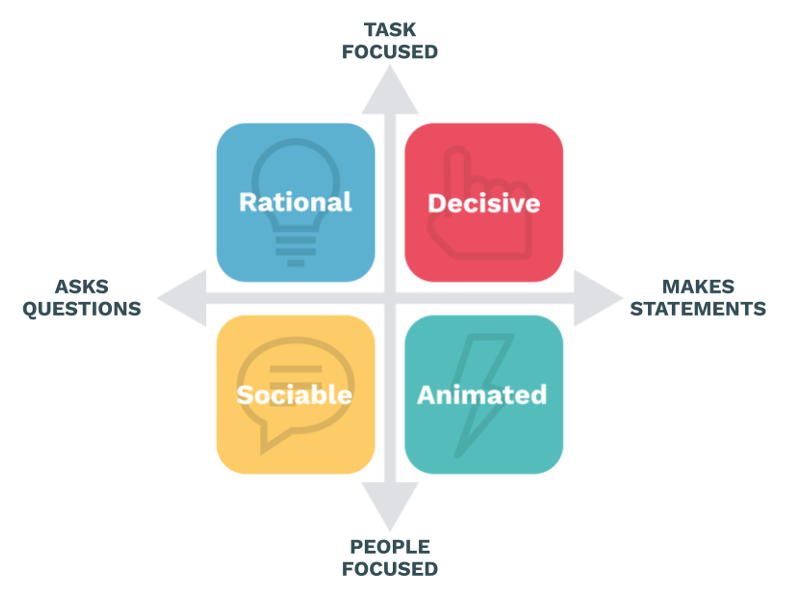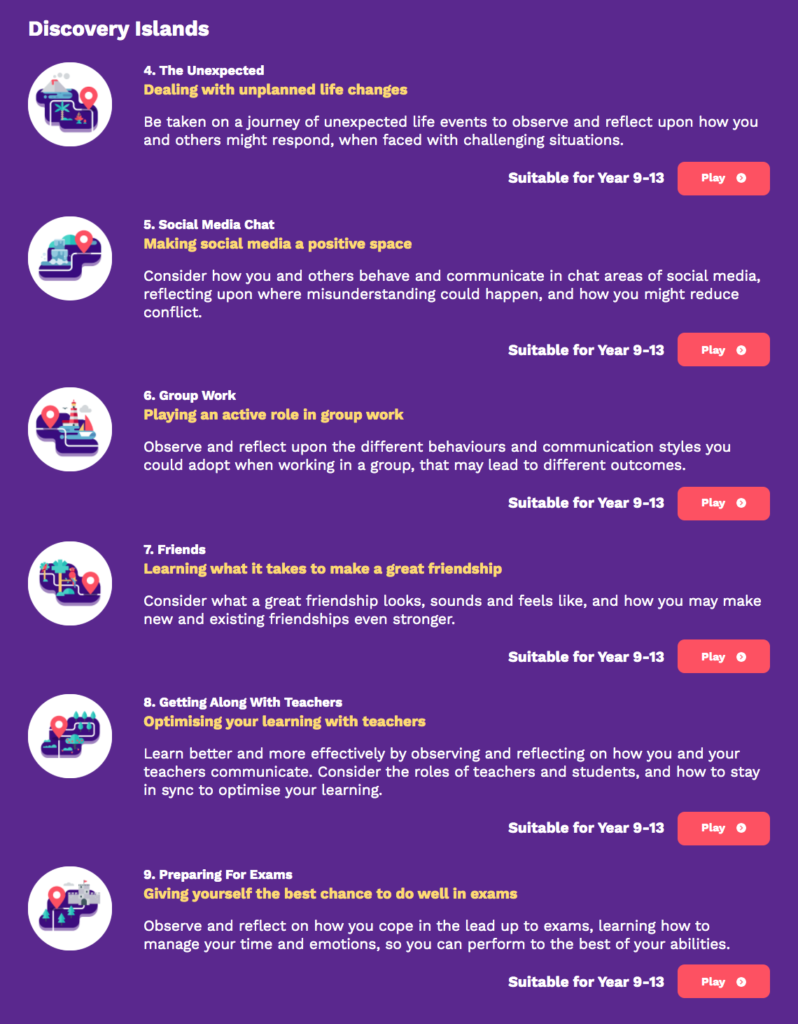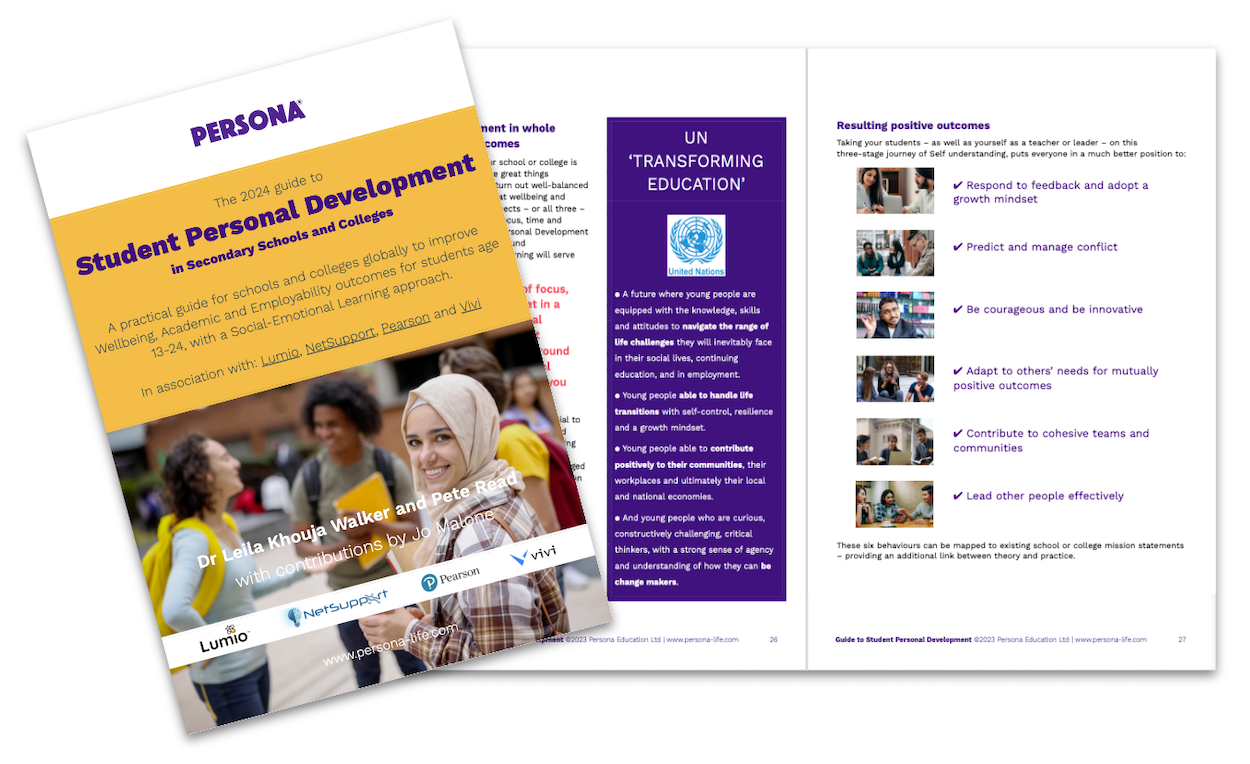One online platform solves three problems facing social-emotional learning

More than ever before young people need to develop social-emotional life skills that boost wellbeing, but schools and colleges face three big problems: Other curriculum priorities, lack of specialist teachers, and PSHE/SEL teacher workload. Online learning could be the solution.
10-Jun-21
By Dr Leila Khouja Walker, Chief Product Officer
The last 18 months has shone a spotlight on the need for secondary schools and colleges to up their game when it comes to supporting student wellbeing. There has never been a more critical time to deliver excellent social-emotional learning (SEL).
Traditionally siloed in PSHE lessons, personal development sessions or tutor time, social-emotional teaching is often delivered by time-poor, non-expert teachers with more pressing priorities (for example subject area examinations), and squeezed into an already overcrowded timetable.
“No one told me how to teach PSHE. I was just the [tutor] to that group of students. That seemed wrong: a subject fundamental in the development of pupils’ social and emotional skills is randomly allocated a weekly spot in the timetable and a teacher.”
– Secret Teacher, The Guardian, 2018 1
This simply makes no sense when you look at research on the potential impact of prioritising social and emotional learning.
“Good wellbeing on leaving school has a much greater impact on life outcomes than exam success.”
– YoungMinds, 2020 2
So we have a huge global education need. We need to provide young people with social and emotional life skills that increase their chances of life-long wellbeing, in learning, social and work contexts. At the same time, schools and colleges are faced with three problems preventing, or at best slowing down, the improvements required to make this a practical reality:
1. Curriculum planning prioritises exam subjects over SEL
2. Most teachers have no training in teaching PSHE or social-emotional skills
3. PSHE teacher workload needs to be reduced, not increased
In the words of one multi-academy trust CEO:
“An e-learning approach to life skills would be a lot easier than finding or training teachers with the ability to teach it.”
– Multi-academy trust CEO, UK
With interactive web technologies, personalised multi-user experiences and secure digital certification to record progress all now a reality – online learning has the potential to become the key to realising our global wellbeing mission, whilst eradicating all three school delivery issues.
Optimising restricted curriculum time
One online social-emotional learning platform leading the field in this area is Persona Life Skills. At its heart lies a personality insights framework that is core to a student’s personalised learning experience.
 .
.
Rooted in empirical behavioural science research, the Persona pedagogy takes students on a journey in efficient lesson-sized modules, beginning with learning about their own unique mix of personality styles. Knowledge of self is a very powerful tool.
“Knowing yourself is the beginning of all wisdom.”
– Aristotle
Starting from a personality insights perspective when developing life skills – such as open-mindedness, resilience and being realistic – informs, improves and accelerates the learning process. Life skills stem both from improved knowledge of self, as well as better understanding of others, so students become equipped to adapt to the different challenges life throws at them.
Persona Life Skills further reduces curriculum time by creating flipped learning episodes. Flipped learning is now commonplace in schools which see the value of optimising teacher-student time. The flipped classroom provides students with readiness exercises to be completed independently, prior to class time, eliminating wasted teacher time in lessons.
A student can take a Persona Life Skills learning module (or ‘Island’ in Persona parlance) following a brief teacher set-up, recording their answers and observations in the app. They then return to the classroom to discuss key points of interest with their teacher and classmates, and try out newly acquired skills.
Making the most of non-specialist teachers
Persona Life Skills has been built with the knowledge that relatively few teachers are trained specialists in social-emotional learning. Some PSHE voices have even commented that schools must have knowledge of PSHE pedagogy so as not to cause unintended harm (SecEd, 2018).3
A curriculum (‘Archipelago’) of teacher-facilitated ‘Island’ modules and shorter self-directed learning ‘My Guided Tour’ modules are available in the app, and any teacher can facilitate the learning. Built-in contextual teacher guidance makes it quick and easy for a non-specialist teacher to set students on the right path to learning.
 .
.
Each Island module takes students on a trip through an age-appropriate life challenge, such as dealing with the unexpected, managing homework, getting along with teachers, use of social media, and self-love.
The Island modules have been carefully designed with input from PSHE experts, school inspectors and students, so that learners feel able to explore a range of topics whilst remaining safe. A code of conduct and safeguarding policy are important reference points both for teachers and for students.
Using engaging, interactive activities, students are taken through a range of scenarios with the aim of developing – through a personality insights lens – 22 life skills, across six skillsets: 1. Being realistic; 2. Communication; 3. Open-mindedness; 4. Problem solving; 5. Resilience; and 6. Self-control. These map to Ofsted, ISI, CBSE, Cambridge iGCSE, Cobis, IB Profile, VIA Character, GL PASS, Skills Builder and other frameworks.
Reducing PSHE/SEL teacher workload
Looking at the final, ever-present problem of workload, online learning provides some relief to over-stretched teachers. The need to prepare for Persona Life Skills lessons is minimised. This is partly thanks to the self-directed nature of the e-learning modules, which students are able to work on independently, or cooperatively with one-another.
And there is no marking or manual progress checking – students receive instant feedback on interactive activities as they go along, and the app records their activity and progress, which are presented in a dashboard at individual, class, year group and school level.
 .
.
So, instead of spending time preparing and marking, teachers can maximise their time and teaching impact by focusing on facilitating and discussing student reflections once modules are completed.
To equip teachers with the confidence to facilitate Persona Life Skills for a flipped classroom, there’s a 30 min online Teacher Onboarding Island. That’s all!
After completing the Teacher Onboarding Island, any teacher is ready to choose and unlock Islands for their group or individual students to work on, in class or independently.
And for those teachers who wish to play a more active role, the in-app teacher guidance within every module allows them the flexibility to facilitate as much or as little as they like.
Persona Education offers free access to its Persona Life Skills online learning platform for secondary schools and colleges interested in developing their pupils’ social-emotional life skills, to boost wellbeing and employability.
About the author: Dr Leila Khouja Walker has been working in the education sector for 25 years. An ex-teacher and pastoral deputy head, she is now a respected edtech and pedagogy thought leader, leading development of the personality insights life skills online learning platform Persona Life Skills, at the Bristol based edtech company Persona Education Ltd. www.persona-life.com
2 https://youngminds.org.uk/media/1428/wise-up-prioritising-wellbeing-in-schools.pdf
3 https://www.sec-ed.co.uk/best-practice/the-seven-myths-of-pshe-education




